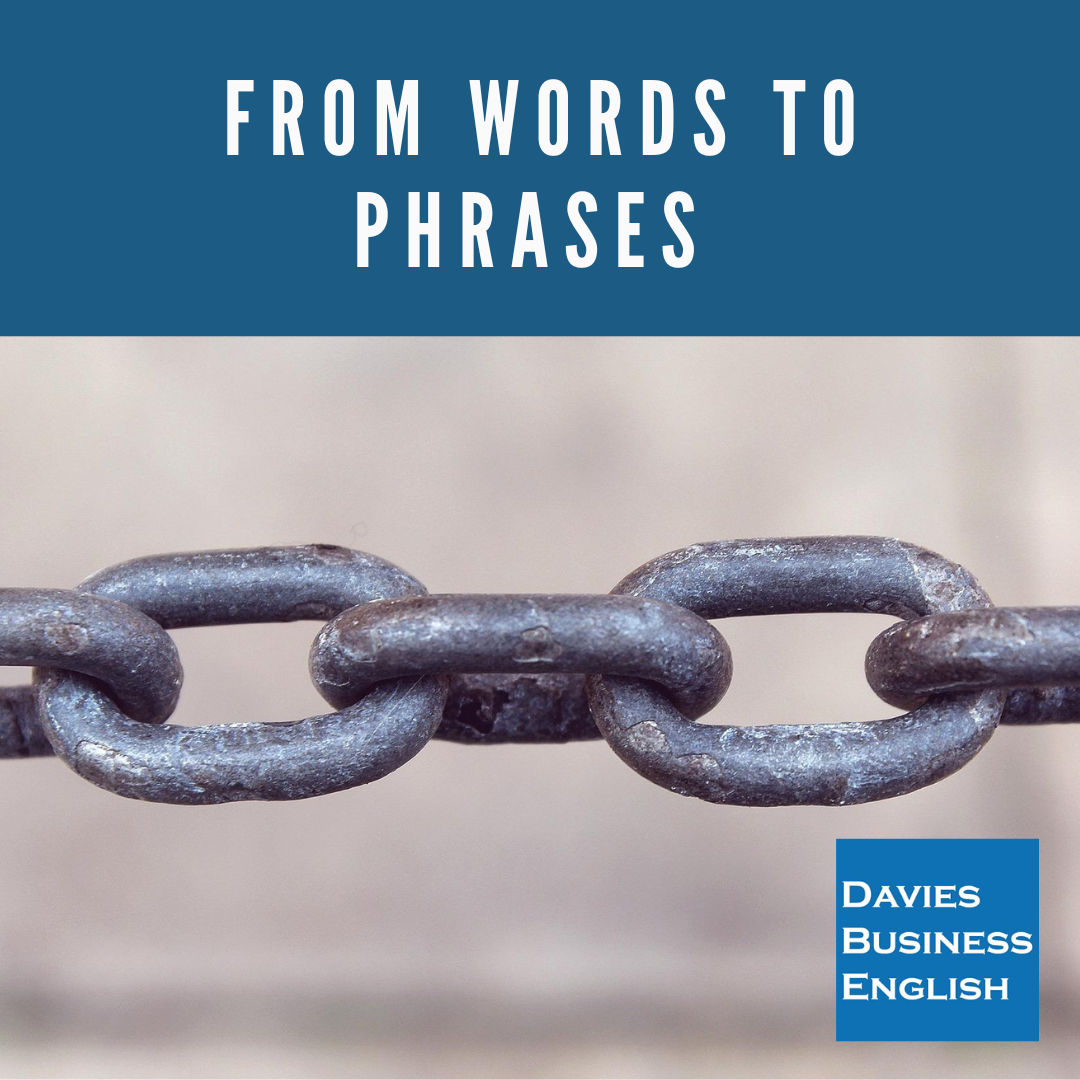A lot of clients have the initial objective of building their vocabulary because they often find themselves in a situation where they can’t ‘find the word they are looking for’. This breaks the fluency of their speech and can make them feel a little embarrassed. As we go forwards, we discover that this is not the whole problem. Simply learning more words does not help them as much as they had hoped because individual words on their own are not always that useful. We don’t just communicate in single words. Sometimes it happens, especially in informal situations such as ‘Coffee?’, which would probably mean ‘Would you like a cup of coffee?’ However, in business conversations it is usually necessary to express ourselves in a more detailed way. This means we need to know which words go together with other words and in what sequence.
One simple example of this is a monochrome photograph or video, perhaps for a publicity campaign, which would be described as ‘black and white’ and not ‘white and black’ as it would be in Spanish. So, when reading and studying a text or listening to an audio, it is important to notice words in their contexts, and which other words go with them, so that it becomes easier to use vocabulary to communicate well.
Let’s look at some other simple examples. How would you describe your food, say, at a business lunch?
‘Nice’ - This tells me that the quality and flavour is acceptable but not much more.
‘Very nice’ - With an enthusiastic tone of voice, I would understand that this is better than just ‘nice’.
‘Really nice’ - The tone of voice again lets me know that we are moving up the quality scale.
‘Delicious’ - Now we are getting somewhere! However, don’t say ‘very delicious’ as ‘very’ isn’t really a ‘strong’ enough word to add value to ‘delicious’. Try ‘really delicious’ or, if the flavours are doing a tantalising tango on your taste-buds then ‘absolutely delicious’ will tell me what I want to know.
Here’s another example. I was watching a TED Talk recently and the three words, ‘lifetime’, ‘body’ and ‘work’, were used together. Someone’s ‘lifetime body of work’ is all the work they have done in their life, someone like an artist, as in this example in the talk. The individual words can be used in different contexts but together they make an interesting and maybe useful phrase.
So, here is my tip for you. Each time you look at a text or listen to an audio, don’t just focus on individual words. Look at the other words that make up the phrase, like the links in a chain. Maybe it can all be translated directly and maybe it can’t. Ask yourself, what the whole phrase means in its context, in English? This is how we really communicate.
